Computing & IS
72nd Graduation: Doctoral Citations – CoCIS
Published
4 years agoon
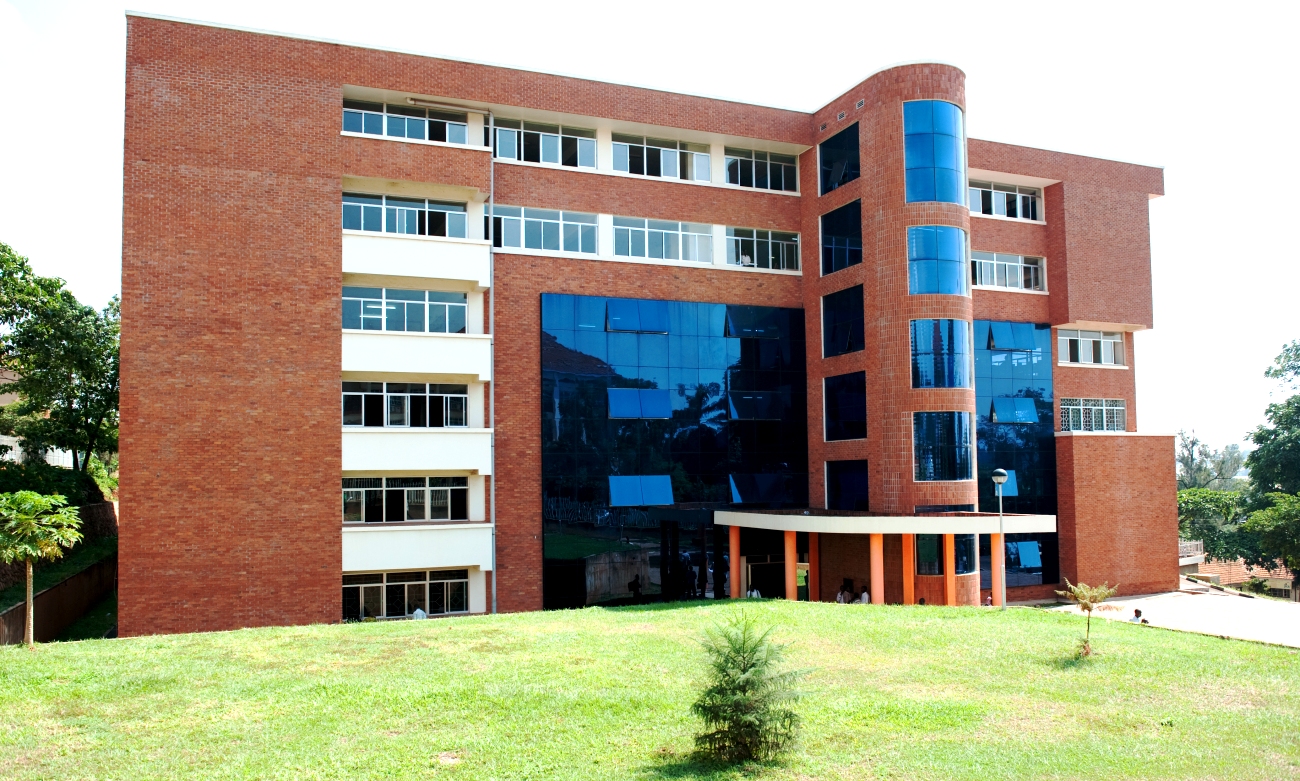
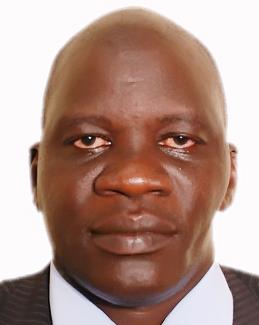
ANGOLE Okelo Richard
Ontology-Based Model for Integrating Knowledge of Modern and Traditional Medicine
Mr. ANGOLE Okelo Richard developed ontology model for integrating complex knowledge of African traditional medicine and modern medicine. complex African Society; African Traditional Medicine (ATM) is used in parallel to Modern medicine (MM). Various attempts have been made to bridge the gap between ATM and MM in order to harmonize treatment and to create an equal form of therapeutic cooperation but in vein due to lack of formal structure and complexity of the knowledge. each practitioner has their own terminologies and ways of providing healing services unlike Knowledge generated from Modern medicine which is structured. Therefore, ATM knowledge is isolated and mistrusted yet a lot of knowledge is generated in the practices which could be used across the whole health sector. In addition, modern medicine alone does not provide whole health needs of patients and the drugs are characterized by having undesired side effects, ATM provides holistic health intervention. ATM treats the body, the mind and the spirit. There is need to come up with a better technology to handle this complex structure of medical knowledge which the current artificial Intelligent (AI) systems used in e-health cannot manage. The model developed bush the backend of AI to handle complexity in medical knowledge. The work was supervised by Assoc Prof. Gilbert Maiga and Dr George Wiiliam Okori.
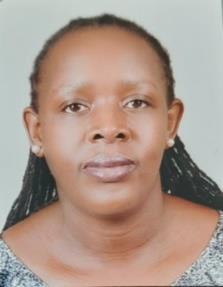
ATUHURIIRE Marriette Katarahweire
Form-based Data Security in Mobile Health Data Collection Systems in Low-Resource Settings
Ms. ATUHURIIRE Marriette Katarahweire investigated security challenges in mobile health data collection systems deployed in low-resource settings. It was found out that data in MHDCS are diverse and have varying security requirements depending on their sensitivity levels. Particular emphasis was on incorporating security controls early in the development process through electronic forms to be used for data collection, and according to sensitivity levels of the data. A data sensitivity model was developed that takes into consideration both static and dynamic parameters for data sensitivity and categorizes data into different sensitivity levels using parameters defined by the stakeholders. Use of the model enables developers to design and build mobile health data collection systems that adhere to the security goals of confidentiality, integrity and availability. This is expected to reduce the potential threats and increase the confidence and adoption of eHealth services. The study was funded by NORAD and was supervised by Assoc Prof Engineer Bainomugisha and Assoc Prof Khalid Azim Mughal.
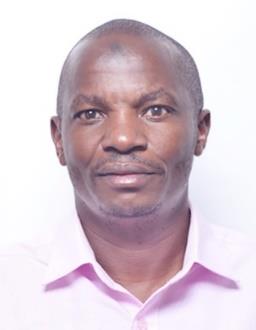
KAMUKAMA Ismail
A model for spatial variability of typhoid disease incidences in Uganda
Mr. KAMUKAMA Ismail integrated clinical, environmental and demographic data to explore spatial variability of typhoid disease incidences in Uganda for the period 2012 to 2017 using data science method. The study first explored spatial-temporal trends and distribution patterns of typhoid disease incidences at both regional and national levels in order to gain initial disease burden insights in the population. The study then revealed highest incidences and clustering of the disease in the central region, followed by Western, Eastern and Northern regions throughout the study period. Geographically Weighted Regression model revealed that poor handwashing practice was mainly influencing disease occurrences in Northwestern, Northern and Northeastern parts of the country. Excessive rainfall was most responsible for disease occurrences in the Eastern, Central and Southern parts of the country. Poor drainage was mainly influencing disease occurrences in the Western, Central and Southern parts of the country. This knowledge is essential for planners and decision-makers to: efficiently plan, enforce preventive measures and make targeted interventions, which eventually reduce disease surveillance costs. The study was funded by SIDA and supervised by Assoc Prof. Gilbert Maiga, Dr. Denis Ssebuggwawo and Dr. Peter Nabende.
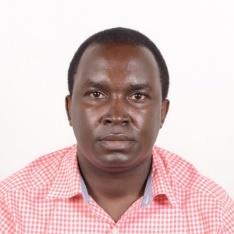
KAMULEGEYA Grace Bugembe
Characterization of Practices and Measurements in Software Start-ups in an Emerging Ecosystem
Mr. KAMULEGEYA Grace Bugembe, through case studies investigated and characterized software hub operations and software start-up practices, and growth-tracking metrics in the emerging East Africa start-up ecosystem. His study characterized the operations of hubs in East Africa as not much had been established about how hubs nurture software start-ups. He also established that software start-ups indeed measured but adopted and adapted some practices and metrics used in start-ups in developed ecosystems. He designed and developed a progress measurement dashboard that start-ups can use to monitor their key growth metrics. He also iteratively derived 10 dimensions that can be used to influence and distinguish metrics used in software start-ups and mature software companies. The compiled hub practices can be used by existing and new hubs to benchmark their operations against the successful hubs in the East African region. The growth metrics will enable software start-ups to track the important aspects of their businesses in the different stages as they grow. This study was funded by SIDA and Supervised by Prof Regina Hebig and Dr. Raymond Mugwanya.
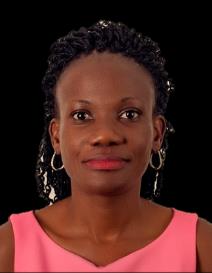
MBABAZI Ruth Mutebi
Designing Persuasive Technologies For Societal Benefit: A Persuasive Technology For Fighting Electricity Theft In Kampala, Uganda
Ms. MBABAZI Ruth Mutebi studied persuasive technology design frameworks, with the aim of developing a technology that could aid in reducing electricity theft in Kampala Uganda. After conducting a survey, Ruth found that electricity consumers are not willing to fight electricity theft, despite its’ negative impact on them. She was modified Fogg’s Eight Step Process using design theory resulting into the Design Theory-Fogg’s Eight Step Process (DT-FESP). This was used to develop a persuasive mobile application to increase willingness to participate in fighting electricity theft called, “Faayo” Evaluation of “Faayo” showed that it had potential to persuade electricity consumers. The research demonstrated the feasibility of persuasive technologies and recommended that Umeme includes them in their electricity theft mitigation strategies. The study was funded by SIDA and was supervised by Dr Julianne Sansa-Otim and Prof. Sebitosi Ben.
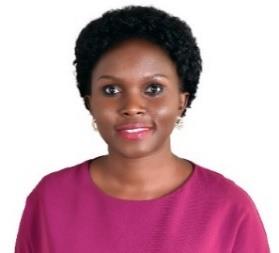
NAKASI Rose
Automated Diagnosis of Malaria in Thick Blood Smear Films: Deep Neural Network Approach
Ms. NAKASI Rose investigated how deep learning algorithms can be used for the automated detection of malaria and its parasitemia determination in microscopic thick blood smear images. Using an experimental design, the study revealed that by exploiting recent technological advances in 3D printing and deep learning to produce effective hardware and software respectively, a functioning point-of-care diagnosis system for malaria on this principle, capable of running on multiple microscopes and phone combinations can be produced. A malaria parasite detection accuracy of over 98% as compared to conventional machine learning methods was achieved. This study contributes to the practical improved malaria diagnosis especially in highly endemic, but low-resource settings in the Sub-Saharan Africa, where there are few trained lab experts. Further, the diagnostic solutions developed in this study could be adapted for the general microscopy disease diagnosis. The study was funded by SIDA, and was supervised by Dr. Ernest Mwebaze and Dr. Aminah Zawedde.
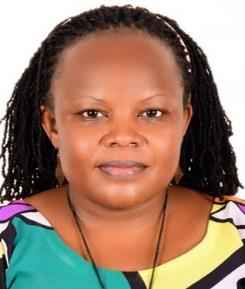
NAMUJUZI Sylvia
Management of Agriculture Archives in National Agricultural Research Institutes in Uganda
Ms. NAMUJUZI Sylvia investigated gaps in the management of agriculture archives in National Agricultural Research Institutes (NARIs) particularly, documentation, maintenance and access. Using case study and descriptive designs, the study established that various agriculture archives existed in NARIs according to their specialties, but were largely in paper format including: Maps, Datasets, Institutional correspondences, Photographs and Government Acts and legislations, among others. However, most of these archival materials were not processed, classified, accessioned and catalogued leading to poor documentation, maintenance and access. Two major outputs of this study were: an evaluated Agriculture Archives Management Framework for closing the gaps and an Agriculture Archives Monitoring and Evaluation Tool for continuous process improvements in agriculture archives management. Further, the framework and the evaluation tool could be adopted by other Agricultural Institutions for the general management of agriculture archives in their possession. The study was funded by Carnegie and was supervised by Prof. Robert Ikoja-Odongo and Dr. Mary Basaasa Muhenda.
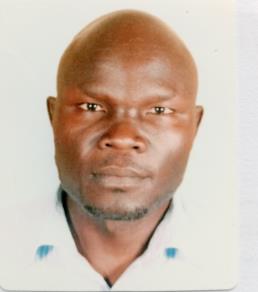
SANYA Rahman
Predicting Infectious Disease Density in Urban Settings using Convolutional Neural Networks
Mr. SANYA Rahman’s thesis explored applications of Convolutional Neural Networks (CNN) for modeling and analyzing spatial dynamics of human infectious diseases in low-income urban settings. This work integrates multiple and diverse data sources including housing density signals (used as proxy for indoor overcrowding) extracted from remote sensing satellite imagery, and socio-economic well-being, as predictors for disease density. Using Tuberculosis (TB) disease data from Uganda, the study found that CNN were promising for detecting and quantifying patterns in infectious disease density. This work is the first of its kind in exploring possibilities afforded by advances in deep learning algorithms and remote sensing data to enhance understanding of infectious disease processes. By doing so, it has expanded the frontiers of methods available for digital epidemiology. The study was funded by the African Development Bank and supervised by Dr. Ernest Mwebaze and Assoc Prof Gilbert Maiga.
Browse Citations by College below:
< Director’s Message | CAES | CoBAMS | CoCIS | CEES | CEDAT | CHS | CHUSS | CoNAS | CoVAB | LAW | MUBS >
You may like
-
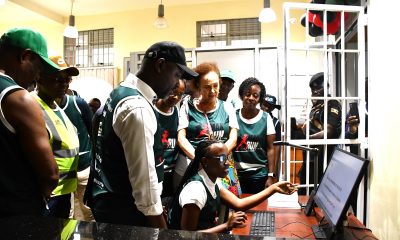

Students empowered to thrive through the Semester
-


Mak hosts First African Symposium on Natural Capital Accounting and Climate-Sensitive Macroeconomic Modelling
-


Olivia Nakisita and the Quiet Urgency of Adolescent Refugee Health
-


Makerere Launches Scholarly Guide, Calls for Increased Research, Publication and Innovation in Africa
-
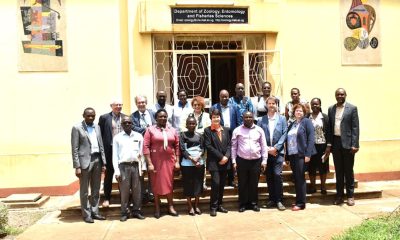

BOKU University Charts New Collaboration Strategies with Mak’s Department of Zoology, Entomology & Fisheries Sciences
-


When Birth Becomes the Most Dangerous Moment, Wanduru & the Work of Making Labour Safer
Computing & IS
Makerere Launches Scholarly Guide, Calls for Increased Research, Publication and Innovation in Africa
Published
1 week agoon
February 12, 2026By
Jane Anyango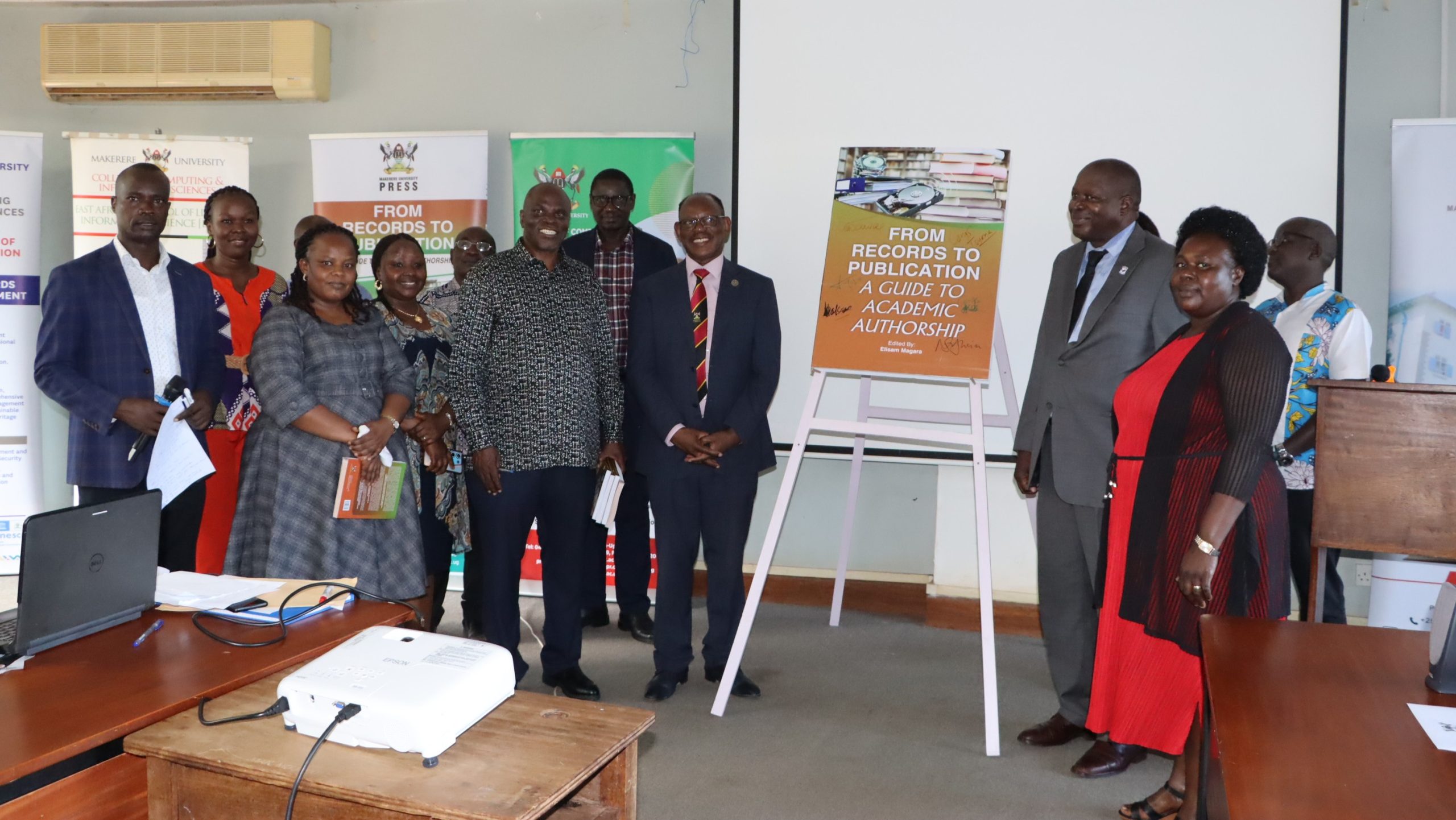
VC Emphasizes Research as Key to Africa’s Global Integration
Makerere University Vice Chancellor, Prof. Barnabas Nawangwe, has urged universities across Africa to invest in research, publication, and innovation as a pathway to greater participation in the global knowledge economy.
Speaking at the launch of From Records to Publication: A Guide to Academic Authorship, edited by Prof. Elisam Magara of the East African School of Library and Information Sciences, Prof. Nawangwe highlighted Africa’s low contribution to global scholarship. “Although Africa accounts for 15 percent of the world’s population, it produces only 3 percent of global research publications,” he said.
“There are historical reasons for this,” the Vice Chancellor continued, referencing centuries of slavery and colonialism. “You cannot brush away 600 years of subjugation. And we Africans have not even written enough about that. If we want to move Africa back into the global community, we must invest in research, publication, and innovation.”
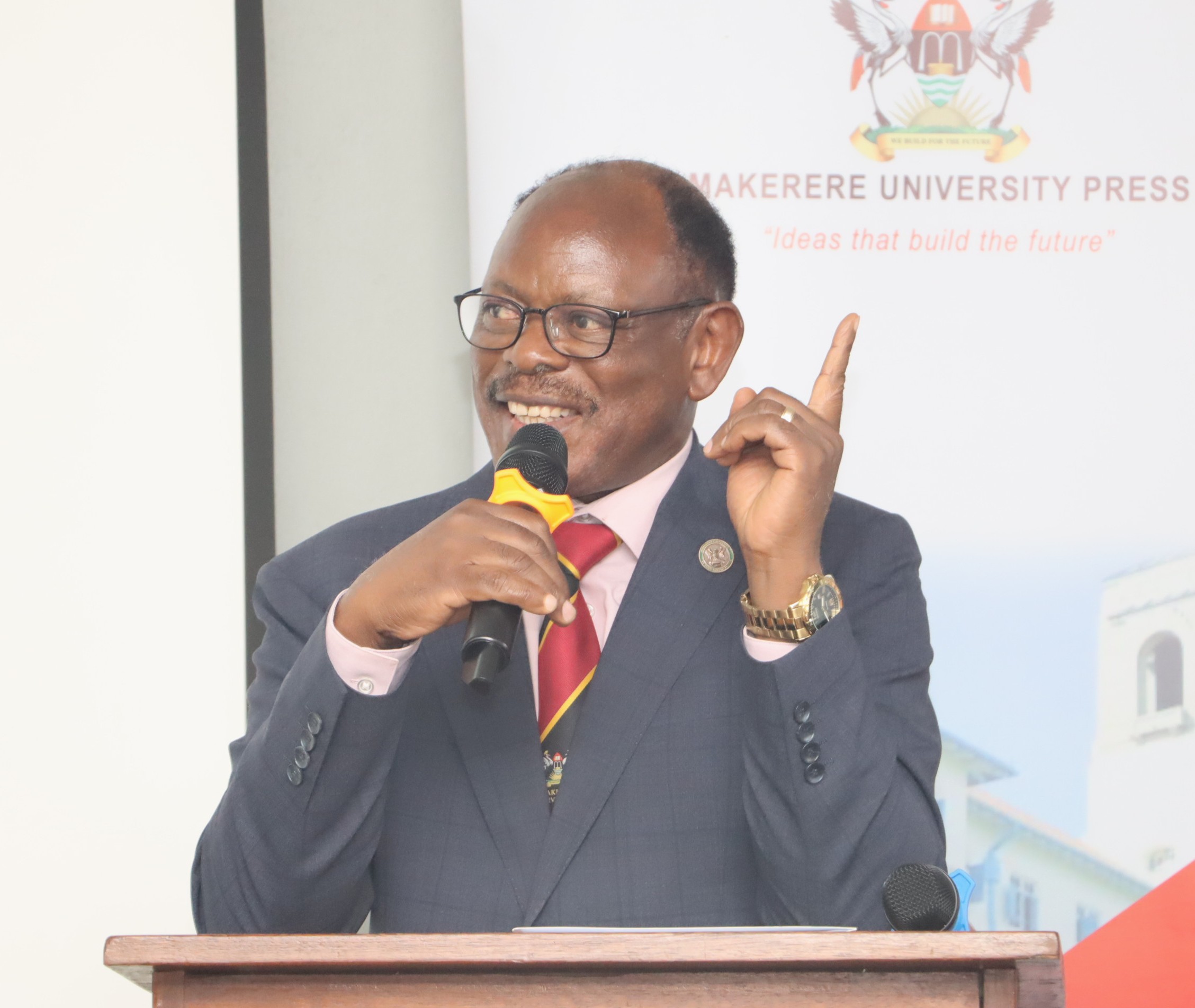
He cited China as an example, noting how the country’s investment in research and education has translated into economic and global influence. “When we say China is the factor of the world, it is not that people just wake up and begin making things. They invest in education, in publication, in research. If we want to transform Africa, we must do the same.”
Prof. Nawangwe highlighted Makerere’s progress, revealing that annual peer-reviewed publications have grown from about 500 a decade ago, to 700, and now exceed 2,000. He acknowledged that the university still trails South African institutions, partly because they operate numerous local journals that absorb significant volumes of research. “We are not fully utilising the brand of Makerere University Press,” he said, pledging support to strengthen the press and scale up journal production.
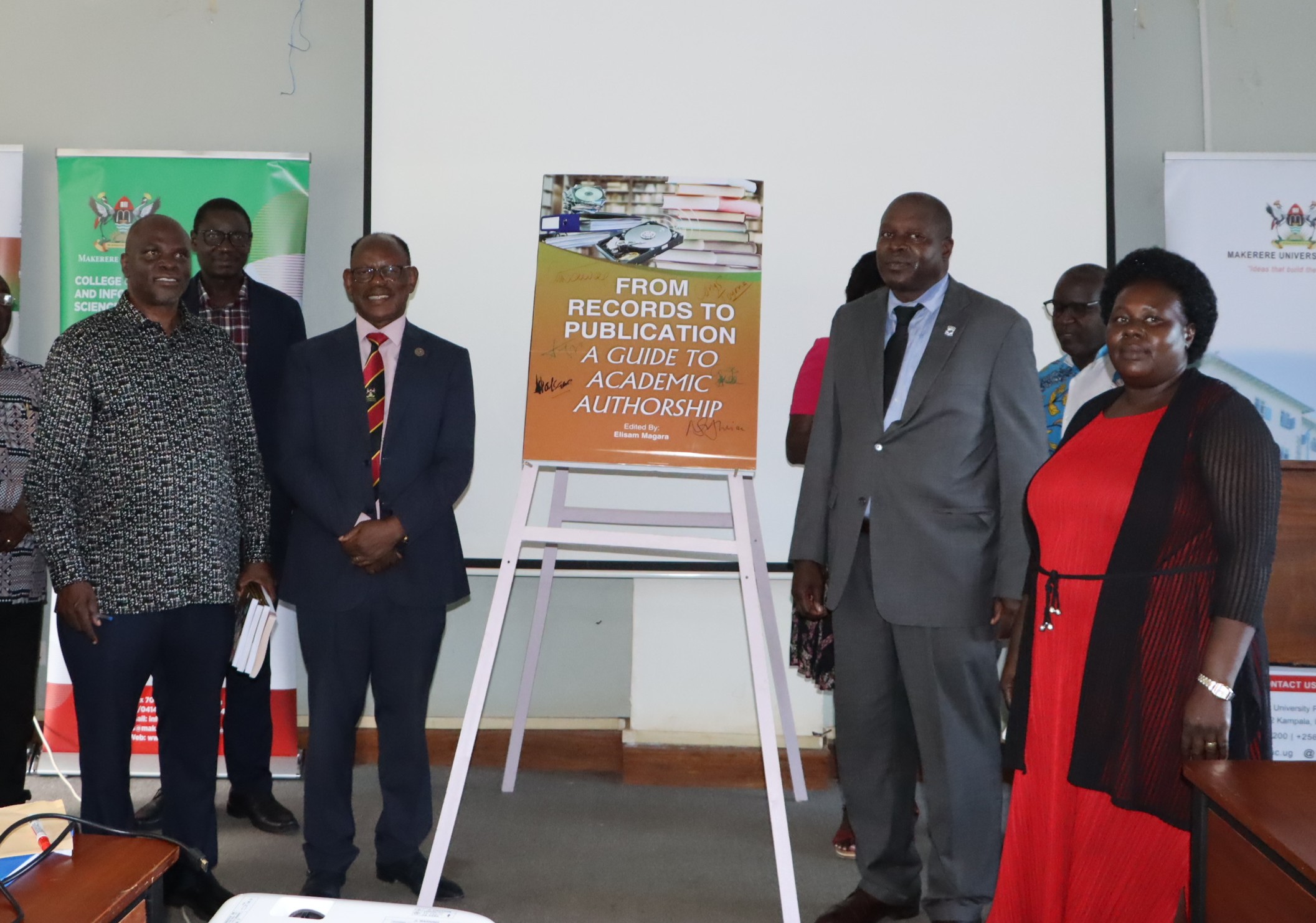
He also reaffirmed the university’s strategy to reduce excessive undergraduate enrolment and expand graduate training to boost research output. “Let us create time for professors to do research and supervise more graduate students,” he said.
Commending Professor Magara and his team for producing the authorship guide, Prof. Nawangwe described the book as an essential handbook for Master’s and PhD students, early-career researchers, and universities across the region striving to become research-led. “This is at the heart of the university. If we invest in research and publication, we secure our future,” he said.
Book Recommended as Mandatory Guide by College Principal
Makerere University’s Principal of the College of Computing and Information Sciences, Prof. Tonny Oyana, called for the newly launched volume to be adopted as a mandatory guide for graduate students and newly appointed lecturers. “This is not a bad book for our first-year PhD students to start with,” he said. “Even those who are hired as junior lecturers still need mentorship. If I were the Vice Chancellor, I would put this book as required reading for every new hire.”
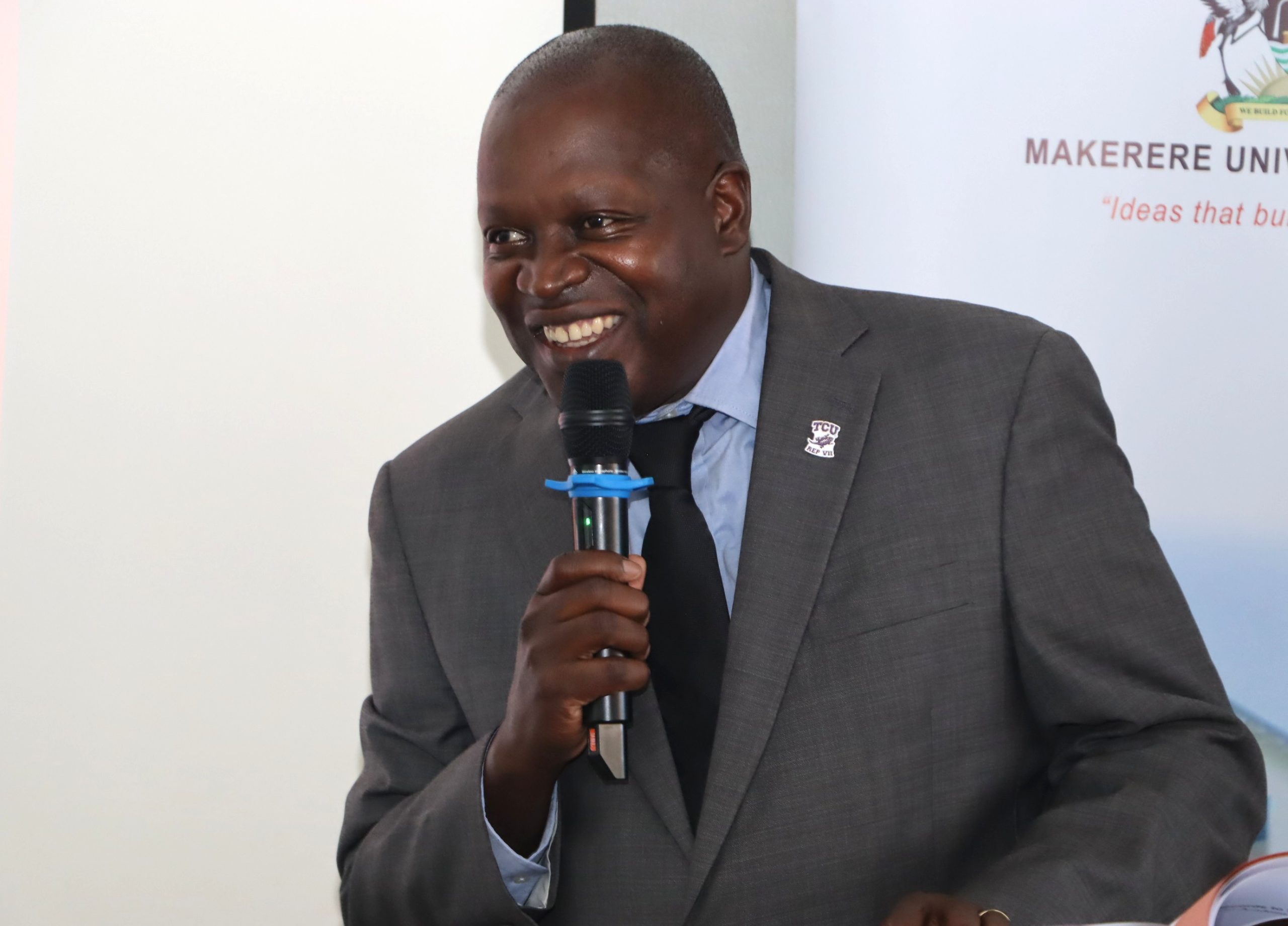
Prof. Oyana reflected on his personal contribution to the book, revealing that administrative responsibilities nearly forced him to withdraw. “Because of the work that I do, I was about to give up,” he admitted. “But Professor Magara was persistent. He came back to me and gave me more time.”
He credited a PhD student, Caroline Ilako, for assisting with library research and literature reviews, saying, “She did a wonderful job. We went back and forth through revisions, but finally we produced the work.”
On the quality of the book, Prof. Oyana said, “When you pick up a book, look at how it is laid out. The quick judgment tells you about the quality. This is well put together. We are beginning to show quality comparable to Western presses.”
He also challenged traditional notions of “publish or perish,” noting, “As scholarship evolves, those who evaluate scholarship must also adjust. Impact, innovation, and tangible products are increasingly valued alongside journal articles.”
Editor Highlights Research-Based Approach
Prof. Elisam Magara, the book’s editor, explained that the guide is designed to support scholars from the moment they conceive a research idea to the point their work is published and read. “I looked at the books we were using and asked myself: which kind of book can truly guide students? We needed a clear guide from the time a scholar thinks of writing up to the time the book is read,” he said.
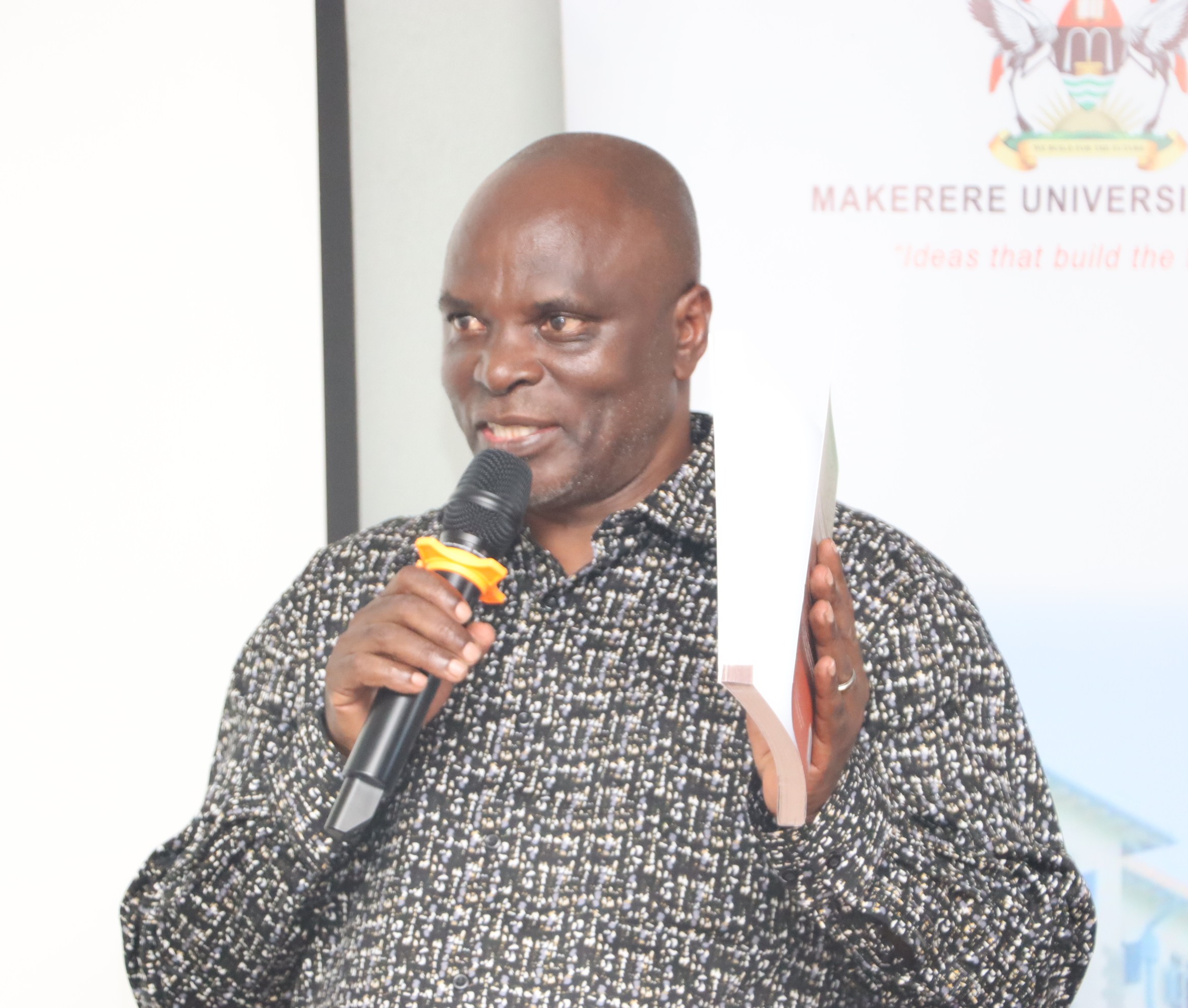
He detailed the rigorous editorial process that began in 2022, including international calls for contributions, peer review of abstracts, writeshops for feedback, and multiple rounds of chapter reviews. “Don’t write and keep,” he advised. “Your book must have impact. It must reach the public and be used.”
Prof. Magara also acknowledged the sabbatical granted by the Vice-Chancellor, which enabled him to balance teaching and editorial responsibilities. “This book is meant not just for Makerere but for scholars across the region and beyond,” he said.
Mak Press Outlines Rigorous Publishing Process
Dr. Isaac Tibasima, representing the Managing Director of Makerere University Press, explained the publication pathway. “Once you bring your manuscript to the press, we take it through evaluation, external peer review, revisions, copy-editing, typesetting, and pre-press review before printing,” he said.
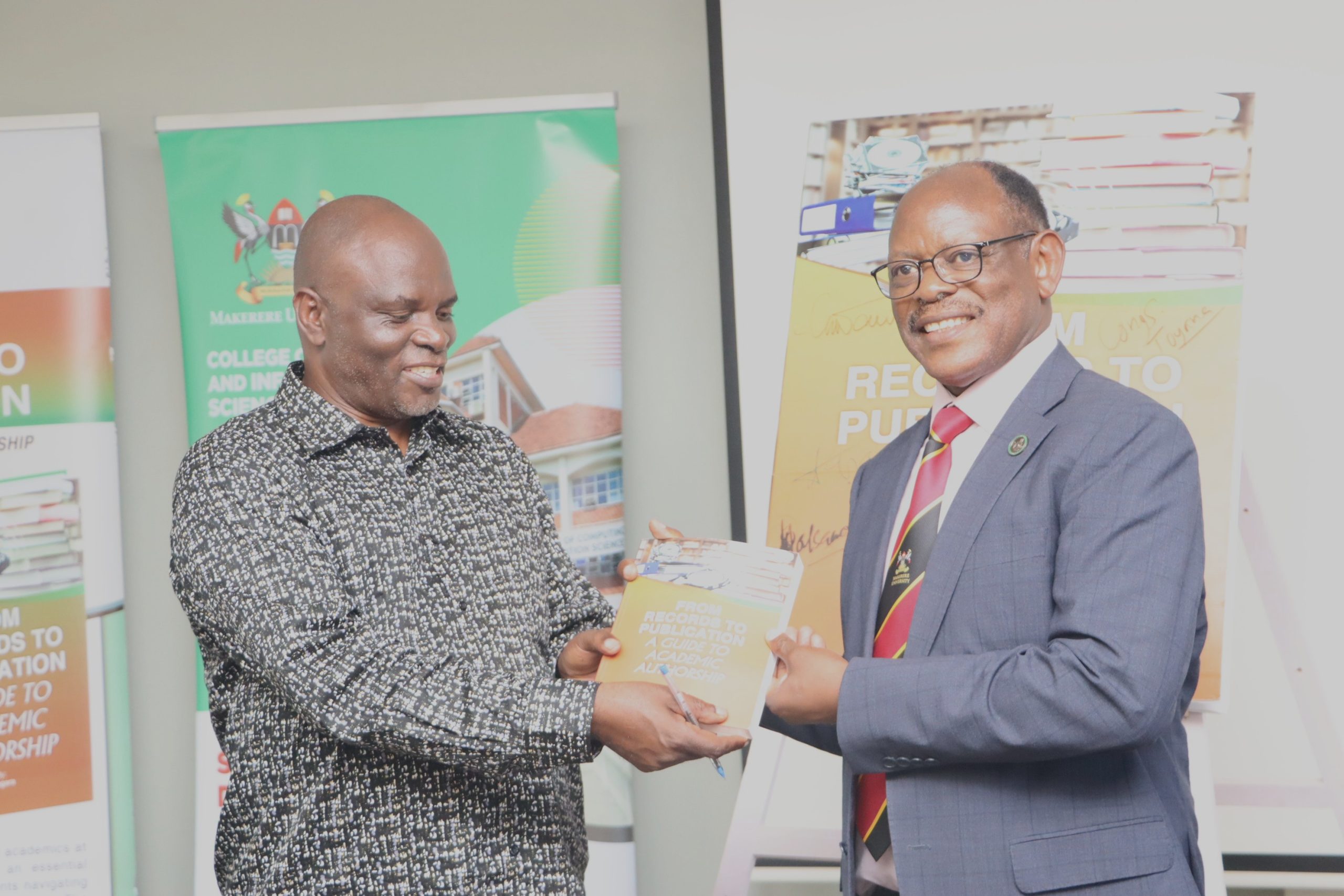
He also highlighted the press’s efforts to strengthen college-based journals. “We will not run the journals, but they will be published under the imprint of Makerere University. If we produce consistent issues, we can then move toward global indexing,” Dr. Tibasima said.
All new journals and articles now carry Digital Object Identifiers (DOIs) to enhance discoverability, while past publications are being retroactively assigned DOIs. “We are not there yet, but we are moving there, and we are intentional about getting there,” he added.
School Leaders Celebrate Scholarship and Mentorship
In welcome remarks, Dr. Sarah Kaddu, Dean of the School, said, “This event is a celebration of scholarship, intellectual discipline, and the journey of knowledge creation. This book speaks directly to one of the most critical challenges facing scholars—transforming research records into publishable work.”
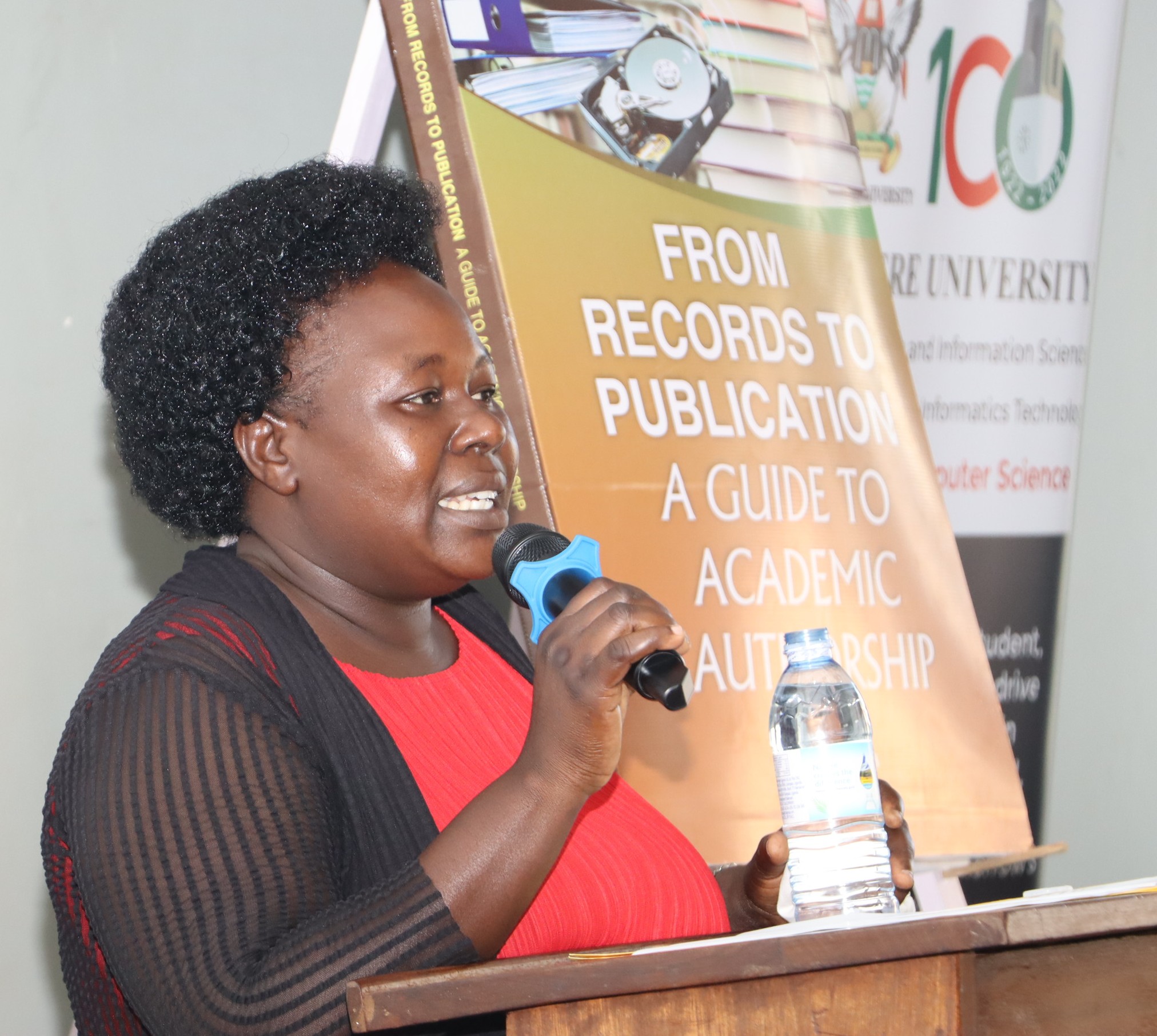
Dr. Sylvia Namujuzi, Head of the Department of Records and Archives Management, added, “This book is timely. It responds to real challenges faced by early-career researchers, postgraduate students, and even seasoned academics—questions of structure, authorship ethics, citation, collaboration, and navigating the publication ecosystem.”
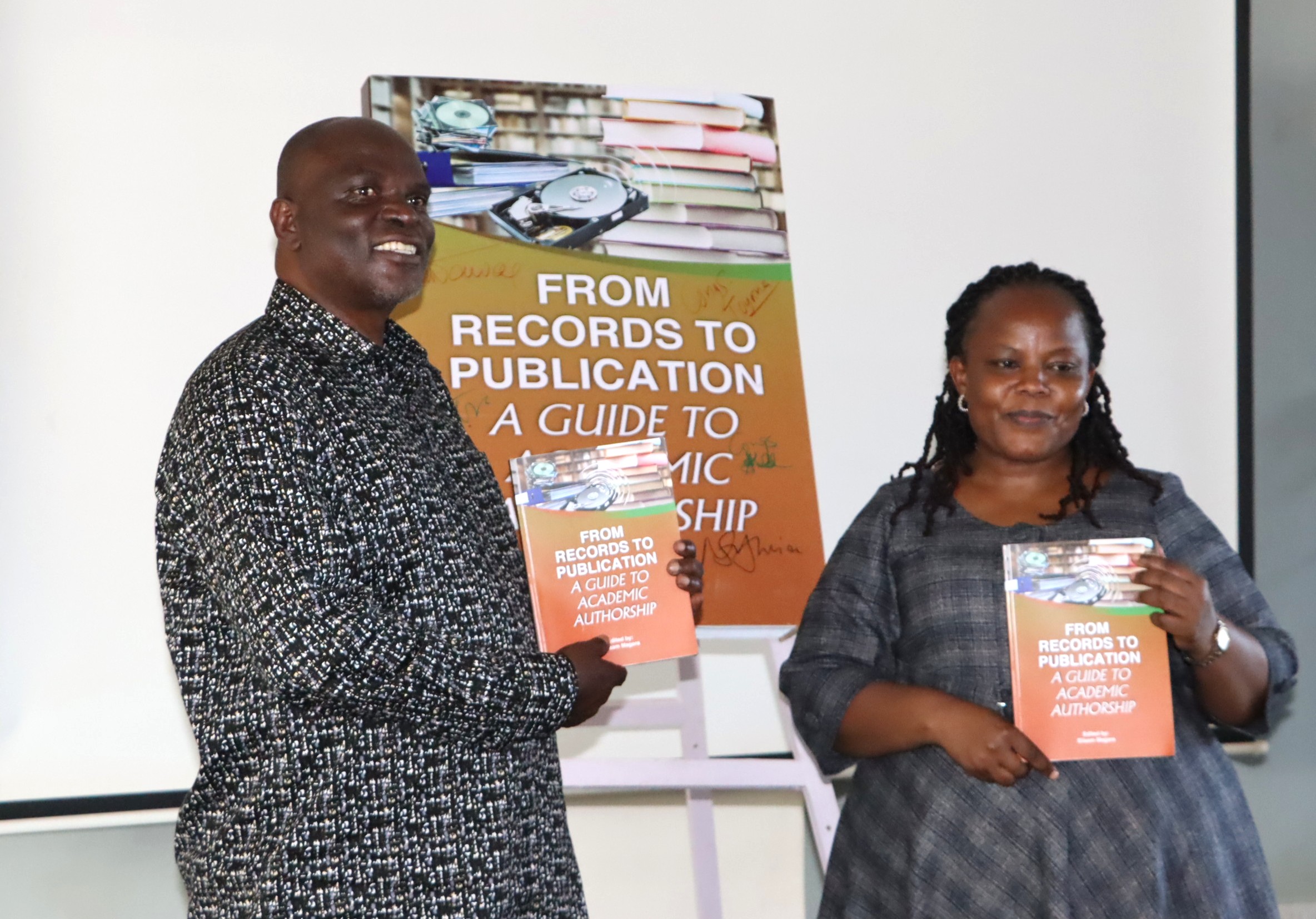
She concluded: “Well-managed records are not endpoints; they are the beginning of inquiry, reflection, and publication. This guide demonstrates that pathway.”
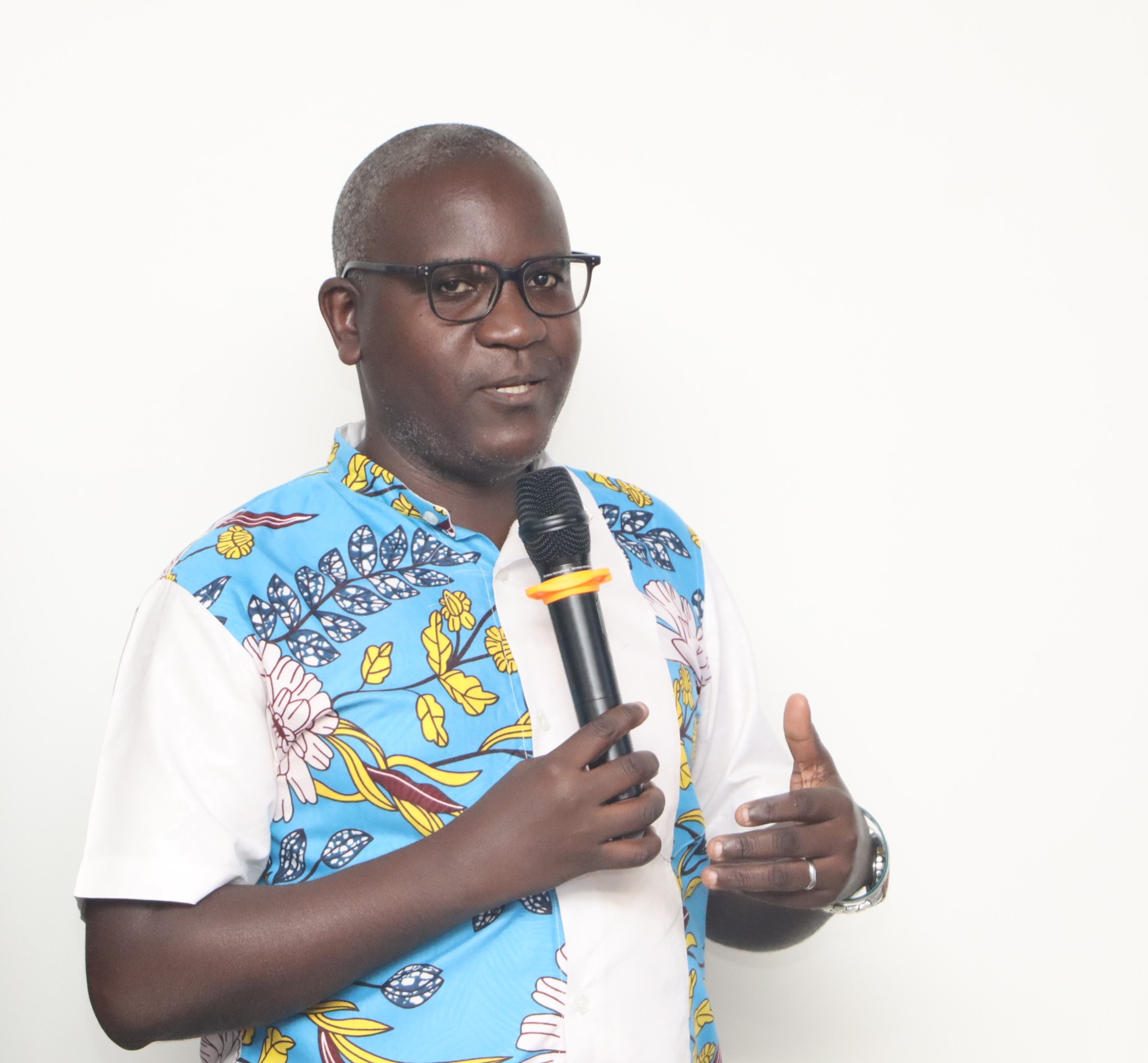
Book Outline
- Introduction: Publication Journey. (Prof. Elisam Magara)
PART I: Foundations of Academic Authorship.
- Conceptual Foundations of Academic Authorship
Elisam Magara and Joseph Kiplangat.
- Archives as a Source of Information for Academic Writing
David Luyombya, Sylivia Namujuzi and Francis Ekwaro
- The place of Oral History in Contemporary Writing
Elisam Magara, James Nkanshah-Obrempong and Nthan Nzyoka Joshua
- Managing Ethical Dilemmas in Academic Writing
Maria Tsvere, Tsitsi Kanonge and Joselin Chigwada
- The Role of Copyright and Neighbouring Rights in Protecting Works of Authors and Publishers in Uganda
Ronald Kakungulu Mayambala
PART II: Managing the Publication Process
- A Manuscript: From Inception to Publication
Sarah Mirembe Kyankya
- Managing Co-Authorship in Academic Writing
Gankhanani Moffat Moyo
- Managing Illustrations and Visual Artworks in Academic Writing
Bob Magara Rutatugirwa
- Tapping into Open Access Platforms for Gainful Authorship
George Muganga
- Managing the Costs in Academic Authorship
Aloysius Rukundo
- The Important Translation in Publication
Monica Mweseli
- Citations and Referencing in Academic Writing
Clement Lutaaya Nabutto, Namujuzi Sylivia, and Daviv Luyombya, Makerere University
- Referencing Management Software In Academic Writing
Odeke Moses Osamai and Constant Okello-Obura
- Compliance with International Bibliographic Control Standards in Academic Authorship
Elisam Magara and Dniel Osinde
PART III: Secondary Services in Academic Writing
- Journal Impact Factor and its Role when Submitting a Publication Article
Tonny J. Oyana and Caroline Ilako
- Managing Mentorship Programmes for Scholarly Writing
Diyoshak Rhoda Danladi and Elisam Magara
Report by
Jane Anyango, Principal Communication Officer CoCIS
Ritah Atukwatse, Journalism and Communication Student (2nd Year)
Fred Kanwagi, Journalism and Communication Student (3rd Year)
Computing & IS
CoCIS CIPSD Short Courses Jan-Mar 2026
Published
1 month agoon
January 19, 2026By
Mak Editor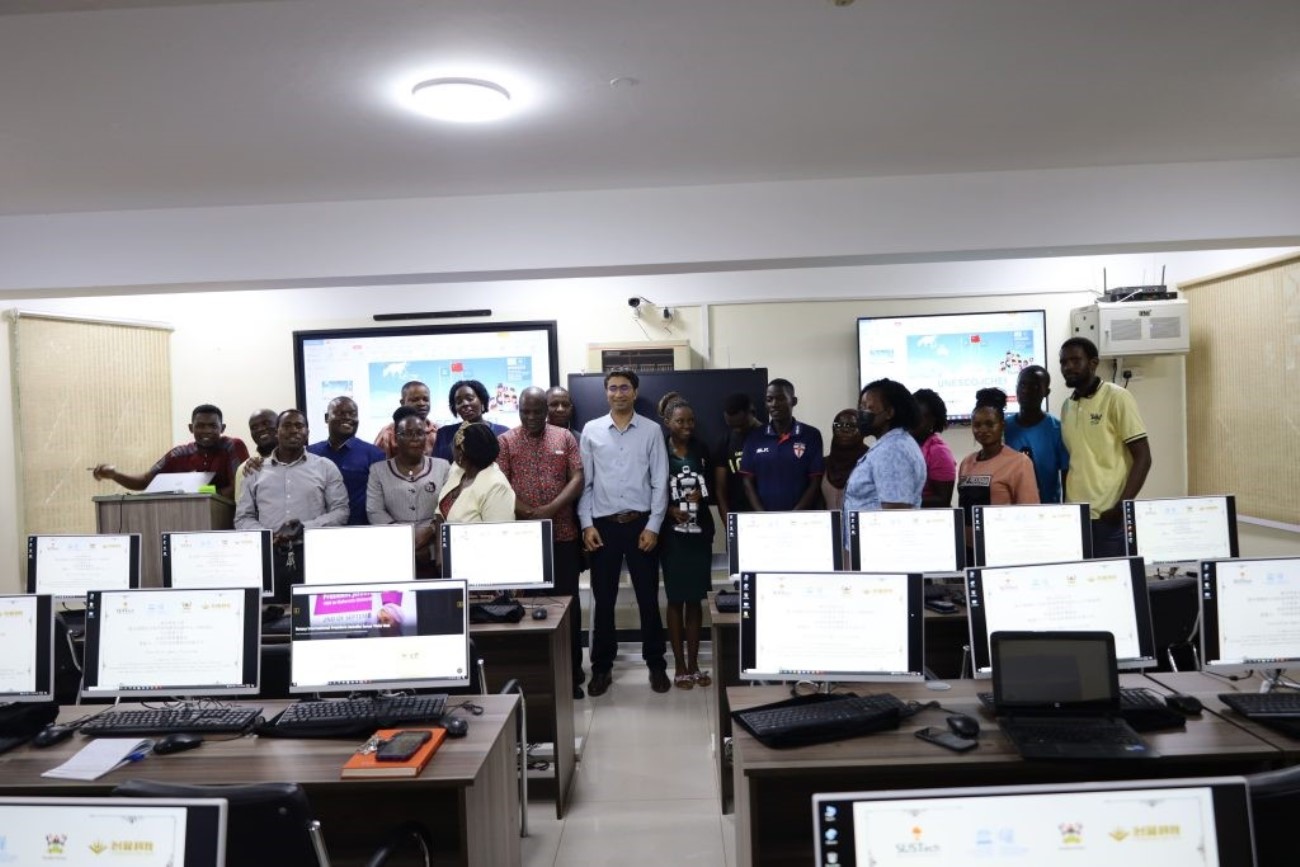
Makerere University College of Computing and Information Sciences (CoCIS) is the main ICT Training, Research and Consultancy Centre in Makerere University. The College has six Academic departments comprising of the Department of Computer Science, Department of Networks, Department of Information Technology, Department of Information Systems, Department of Library and Information Sciences, and the Department of Records and Archives management.
In addition to the mainstream degree programmes, CoCIS has a specialized Center for Innovations and Professional Skills Development (CIPSD) which delivers state-of-art training in ICT e.g. the Cisco Networking Academy for Cisco related courses, the Microsoft IT Academy Program for Microsoft related courses, International Computer Driving License course, Oracle Certified Training center for Oracle, Linux and Unix Training center. CIPSD also offers Machine Learning, Big Data Analytics, Data Science, Artificial Intelligence (AI) and Ethical Hacking as online courses. The College is an authorized Testing center, operating under PearsonVUE and Kryterion. Listed in the table (see download below) are the courses currently offered at the Center with their next start dates, duration, and cost.
- All courses are at affordable fees catering for Students, Vacists, Professionals and
- Anyone who wants to start a career in ICT or polish his/her ICT skills.
Contact Information
E-mail: psd.cis@mak.ac.ug
Tel: +256 782 512 897 +256 752 779964
URL: https://cocis.mak.ac.ug/cipsd/
Computing & IS
Makerere University and SoonPay Sign Landmark MoU to Champion Blockchain Innovation and Financial Inclusion Across Africa
Published
2 months agoon
December 9, 2025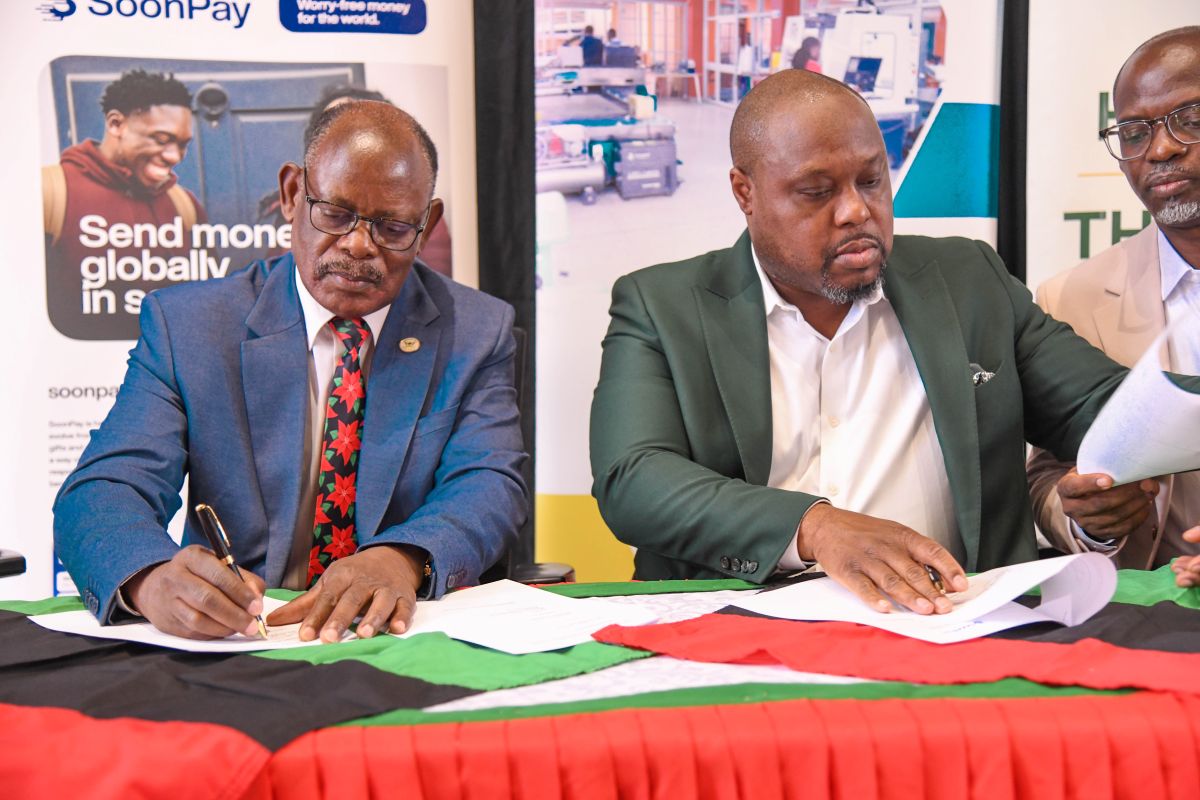
On Saturday 6th December 2025, Makerere University entered into a ground-breaking partnership with the U.S.-based fintech company SoonPay, marking a major breakthrough in Uganda’s push to integrate emerging technologies into research, innovations, higher education and national development.
The Memorandum of Understanding was signed by the Vice Chancellor of Makerere University, Prof. Barnabas Nawangwe and Mr. Frantz Morency, Chief Executive Officer of SoonPay L.L.C, during the Makerere University Financial Innovation Day, a high-energy event that brought together over 800 students, faculty, industry partners, and technology leaders.
The MoU institutionalizes the collaboration of Makerere University through the Makerere University Technology and Innovation Centre and SoonPay LLC. The signing ceremony was witnessed by Dr. Cathy Ikiror Mbidde-Manager of Makerere University Technology and Innovation Centre and Ms. Vuyani Jones-Blockchain Infrastructure Manager.
Organized by the Makerere University Technology and Innovation Centre (MUTIC) in partnership with SoonPay, the event ran under the theme “Innovation and Financial Inclusion for a Secure Future.” It featured keynote speeches, panel discussions, live demonstrations, and the signing of a Memorandum of Understanding (MoU) that will usher in a new era of blockchain training, research, and innovation at Uganda’s premier university.
The event was supported by several partners, including the National Social Security Fund (NSSF), the Uganda Blockchain Association, the National Planning Authority (NPA), Prudential Uganda, and other technology and financial sector stakeholders.
A Strategic Partnership to Transform Africa’s Digital Landscape
The newly signed MoU between Makerere University and SoonPay is expected to unlock a broad set of opportunities for students and academic staff. These include blockchain education and certification, joint research projects, internships and apprenticeships, the development of new financial inclusion tools, and the integration of emerging technologies into existing academic programs.
SoonPay’s entry into Uganda is part of a larger vision to expand blockchain-driven solutions across Africa—a continent its executives say has historically been excluded from global technological revolutions.

Impressed by the overwhelming numbers of students who filled the Yusuf Lule Central Teaching Facility Auditorium to the brim, the Vice Chancellor, said: “Dear students, by choosing to stay on campus, on a Saturday, and after completing your examinations, you have demonstrated your willingness to learn and embrace the blockchain technology as well as emerging technologies in general.”
Stating that blockchain technology is the future for Africa, the Vice Chancellor challenged the students to take charge of Africa’s digital transformation.
“You are the people to emancipate Africa from marginalization,” he declared. “What will liberate our continent is not politics—we have done too much of that. It is education, research, innovation, and technology.”
Prof. Nawangwe delivered a sweeping historical reflection, tracing Africa’s technological setbacks to the destruction of its civilization over several centuries.
“For 400 years, Africans were taken away as slaves. For another 200 years before that, our lands, knowledge systems, and technologies were disrupted,” he said. “This represents around 600 years of destruction and marginalization of African civilization.”
He urged students not to miss the opportunity that modern technologies such as blockchain and artificial intelligence present.
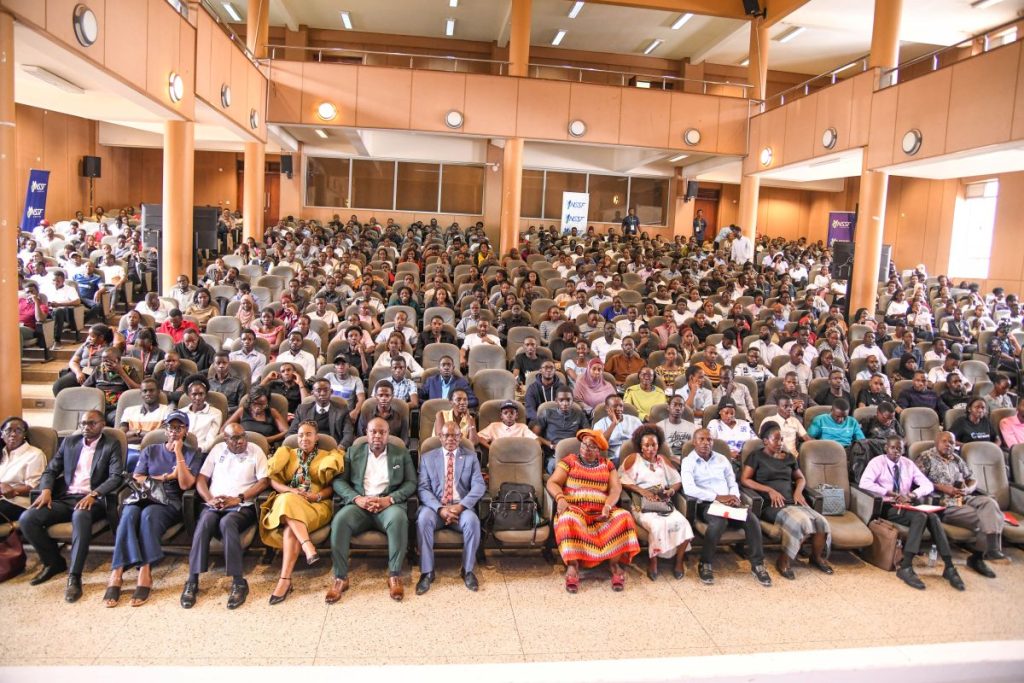
“We are lucky to be living in an era where Africa is free,” the Vice Chancellor said. “My hope is that we do not wait another 600 years to take advantage of this freedom. The most important resource we have is not minerals; it is human resources—you, the youth.”
Prof. Nawangwe reminded students that Makerere’s reputation as the “intellectual capital of Africa” places immense responsibility on their shoulders.
“You are among the very few Ugandans privileged to study at Makerere University. University graduates are not supposed to wait for jobs—you are the ones expected to create them,” he said.
Why Blockchain? Transparency, efficiency, and global competitiveness
The Vice Chancellor highlighted the transformative potential of blockchain technology, especially in improving financial systems—a sector he described as the backbone of any modern economy.
“Without efficient financial systems, nothing else works,” he said. “Blockchain offers transparency, reduces fraud, and minimizes corruption. If applied properly, it could transform how we manage finances, education, and even our natural resources, including the oil that Uganda is about to exploit.”
He added that Makerere’s students are already demonstrating global competitiveness in innovation, winning international competitions and creating products across multiple disciplines.
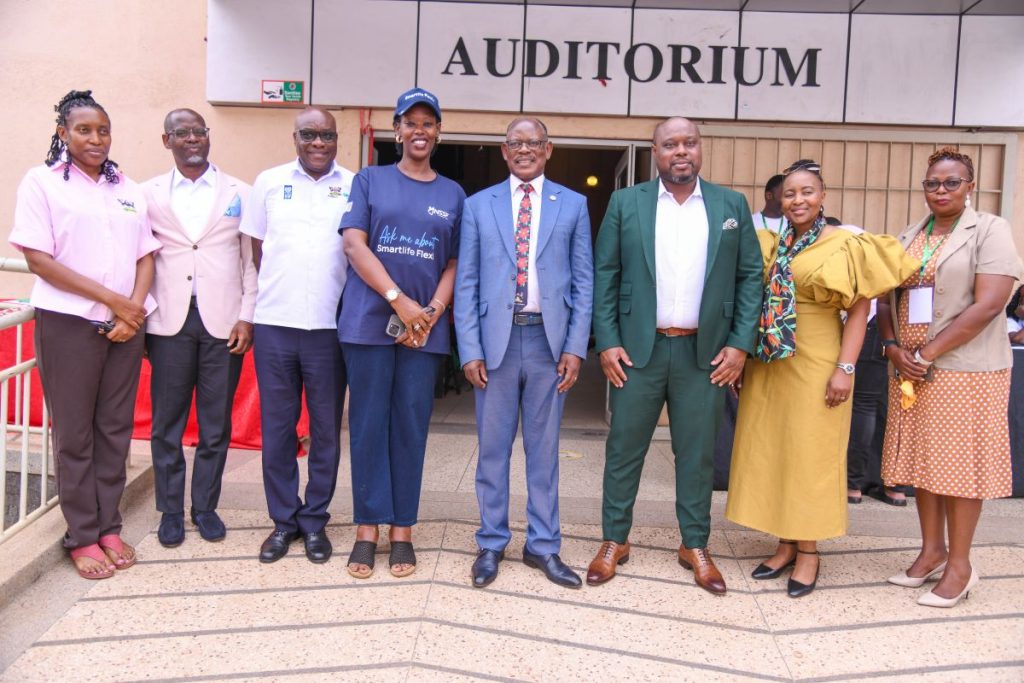
“The brains are here,” he said. “What we need is exposure to opportunities and technologies that will help you turn your ideas into impactful solutions.”
In a passionate keynote address, SoonPay CEO, Mr. Frantz Morency underscored why his company chose Uganda as its launchpad for blockchain adoption in Africa.
“As the Professor said, we have been excluded for more than 400 years,” he stated. “Even though we’re an American company, we know our roots. Look around the SoonPay team—you will see yourselves. We chose Uganda intentionally.”
Mr. Morency pointed to Africa’s dismal participation in the global blockchain economy. “In the U.S., blockchain generates $2.6 billion—61.7 percent of the world’s share. The rest of the world generates $1.6 billion. And Africa, just $14 million, or 0.33 percent,” he said. “That is unacceptable.”
He attributed the gap not to a lack of interest among young Africans, but to a lack of opportunity. “You want to learn—what you lacked was opportunity,” he said. “With the support of Professor Nawangwe, Dr. Cathy Ikiror Mbidde, and Dr. Margaret Nagwovuma, SoonPay wants to bridge that gap in education, technology, and economic opportunity.”
Mr. Morency also shared his personal journey, connecting his Haitian background to the aspirations of African youth.
“Many of you may see me as ‘the guy in the green suit,’ but I come from a small island—Haiti,” he said. “My mother never finished first grade; my father never finished second grade. What they gave me was integrity, work ethic, and the determination to seize opportunities when they came.”
He urged students not to seek opportunities abroad out of desperation, but to build meaningful careers in Africa. “Africa does not need to lose its talent. Why can’t you build here? Why can’t businesses, innovation, and prosperity thrive here?” he said. “Educate yourselves. Build. Create. Grow.”
A milestone for Makerere and Africa
Dr. Cathy Ikiror Mbidde, Head of the Makerere University Technology and Innovation Centre (MUTIC), described the event as a “major milestone” in the institution’s evolution.
“We are here to witness one of the key emerging technologies and to reflect on how universities can embrace such milestones,” she said. “Everyone has a role to play in transforming our lives through research, ideas, and projects.”
She thanked SoonPay for choosing Makerere University, noting that students had been “instrumental” in pushing for blockchain education.
“You have been constantly asking questions, pushing us, and showing deep curiosity about blockchain. Today, we finally have answers,” she told the students.
Beyond the speeches, the event showcased SoonPay’s blockchain infrastructure, student-led innovations, and a roadmap for integrating digital finance tools into university programs. Partners such as NSSF emphasized the importance of preparing young people for a digital future.
With the MoU now in force, Makerere University is positioning itself as a regional hub for blockchain education, research, and innovation. The partnership with SoonPay aims not only to train students but to shape Uganda’s—and Africa’s—next generation of tech leaders.
Trending
-

 General2 weeks ago
General2 weeks agoAptitude Exam (Paper 1) Results for the Mature Age Entry Scheme 2026/2027
-

 Health4 days ago
Health4 days agoUganda has until 2030 to end Open Defecation as Ntaro’s PhD Examines Kabale’s Progress
-

 Health2 weeks ago
Health2 weeks agoHow Jimmy Osuret Turned Childhood Trauma into Evidence for Safer School Crossings
-

 General2 weeks ago
General2 weeks agoFor Youth by Youth – Call for Second Cohort Applications
-

 General4 days ago
General4 days agoMastercard Foundation Scholars embrace and honour their rich cultural diversity
